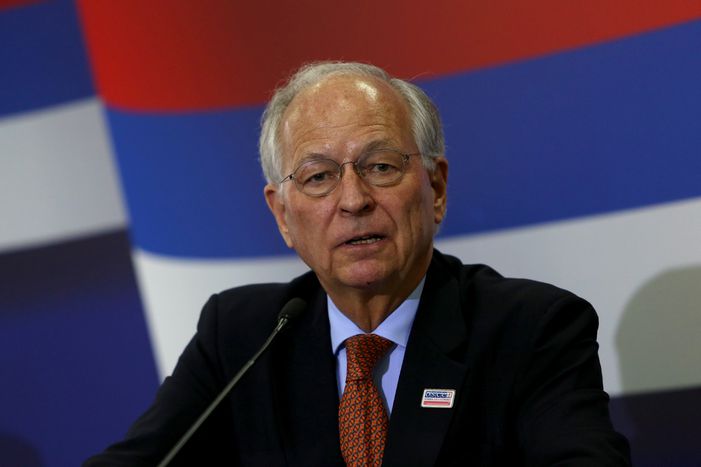
W. Ischinger proposes a « neutral status »
Published on
Wolfgang Ischinger, European mediator of the American Russian European troika for finding a solution to the future status of Kosovo, proposes a ‘neutral status” for the talks that took place on November 20 in Brussels between Belgrade and Pristina.
For once, Pristina and Belgrade agree: the two parties rejected the proposition right away, though for different reason, each one standing for his own conception of the Serbian province mainly inhabited with Albanians.
According to agencies, W. Ischinger declared that the purpose of this proposition was to normalize the relationships between Pristina and Belgrade, and that a possible solution “would mention no word about the status”. “An agreement on a neutral status will be a proposition intended to create some relationships that would not be based on a possible determination for the status of Kosovo. Today, no relationships do exist between Serbia and Kosovo, and no try for a any collaboration either” a German diplomat underlined.
He explained that it would be an agreement for a collaboration based on economic, trade and fight against criminality issues. The agreement would define obligations for Kosovo such as, for instance, consulting Serbia on minority and frontier issues, which would, according to the European mediator, “be in the interest of both parties”.
This proposition draws a turning point in the role undertaken by the troika as, through making a proposition on the status of Kosovo, it becomes an actor after being a mediator, indicates Javier Solana’s spokeswoman Cristina Gallach in the daily Albanian speaking newspaper Koha ditore.
In Blic Online, a Serbian daily, the Russian mediator, Alesksandar Bocan- Harčenko, underlined straight after W. Ischinger’s statement that the troika was thinking about many various propositions in order to stimulate both parties for the meeting taking place on November 20.
Nevertheless, the day before, on November 14, the Russian agency RIA Novosti reported that, according to the Russian minister of foreign affairs, Sergueï Lavrov, the “troika” of the Contact Group for Kosovo had elaborated a solid basis for negotiations on the status of the province, still underlining that we should “avoid to predetermine the outcome of the negotiations and to stop a date”.
The deputy secretary for political issues working at the American State department, Nicolas Berns, reiterated his support for a “supervised independence” if the two parties don’t manage to find an agreement on December 10 (date when the troika will issue its report to the general secretary of the United Nations, Ban Ki Moon), and he warned Serbia against any use of violence.
An astonishing proposition as it has been weeks now since the government of the pro-European Serbia loudly claimed that in case of any unilateral proclamation of independence from the Albanian party, no Serbian would deploy on Kosovo. Consequently, Serbia made a choice of non violence and planned to build parallel institutions.
Snejana Jovanovic Kosovo.over-blog.net / Translation : Sophie Helbert



